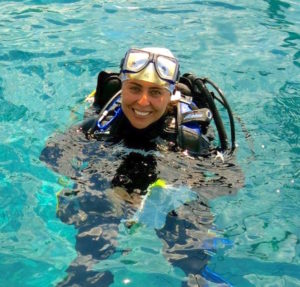I have studied coral reefs from molecular to community levels. My general interests are in understanding the mechanisms by which marine organisms respond to environmental forcing in their ecological context, to improve predictions of ecosystem responses to multiple stressors such as climate change, habitat degradation and fishing.
I completed my bachelor and master degree studies in Colombia while exploring Caribbean reefs. During my masters’ degree, I investigated the genetic diversity and dispersal of Symbiodinium spp. by the stoplight parrotfish Sparisoma viride (Castro-Sanguino & Sanchez 2012).
In 2012 I moved to Australia to pursue my PhD at the University of Queensland. My PhD research focus on the ecological drivers of the marine calcareous algae Halimeda, one of the greatest contributors to reef carbonate sediments. Here, I combined long-term field-based experiments (Castro-Sanguino et al 2016) and laboratory experiments (Castro-Sanguino et al 2017) to quantify the interactive effects of temperature, light, nutrients, and herbivory on Halimeda growth dynamics. Based on these results I developed a mechanistic, individual-based model of Halimeda population demographics to estimate Halimeda’s contribution to reef carbonate sediment production (Castro-Sanguino et al 2020).
My postdoctoral experience has involved meta-data analyses to investigate the effect of fishing on reef fish and benthic communities of the northern Great Barrier Reef (GBR) (Castro-Sanguino et al 2017). My work at the Global Change Institute (in 2018) and at the Australian Institute of marine Science-AIMS (in 2019) focused on assessing impacts of multiple stressors (e.g. water quality, cyclones, bleaching, crown-of-thorns starfish, CoTS), on coral population dynamics along the GBR. Currently, my work at MSEL aims to help developing a decision-support system for controlling CoTS, one of the greatest threats on the GBR.

